Australian share market drops as pre-lockdown retail spending spike is revealed
Retail spending across Australia jumped 8.5 per cent in March, new figures out today show, as the share market recorded another dive in the wake of COVID-19.
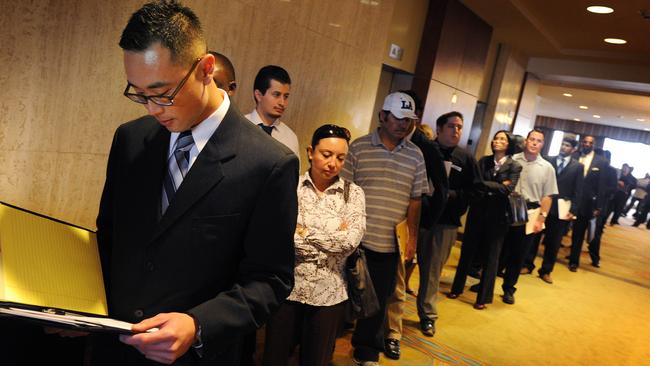
News
Don't miss out on the headlines from News. Followed categories will be added to My News.
Retail spending across Australia jumped 8.5 per cent in March, as consumers stockpiled food and office supplies in anticipation of coronavirus lockdown measures.
The figures were released today, as the ASX recorded another drop in the wake of the COVID-19 crisis.
Seasonally adjusted retail spending rose to $30.11 billion and followed a rise of 0.6 per cent in February, according to Australian Bureau of Statistics data released today.
The result helped retail sales volumes lift 0.7 per cent for the March quarter to a total of $80.72 billion.
The monthly number bettered an optimistic market expectation, with analysts forecasting an 8.0 per cent rise in March.
The result was driven by unprecedented demand in food retailing, with spending on groceries, liquor and specialised food up between 23 per cent and 30 per cent.
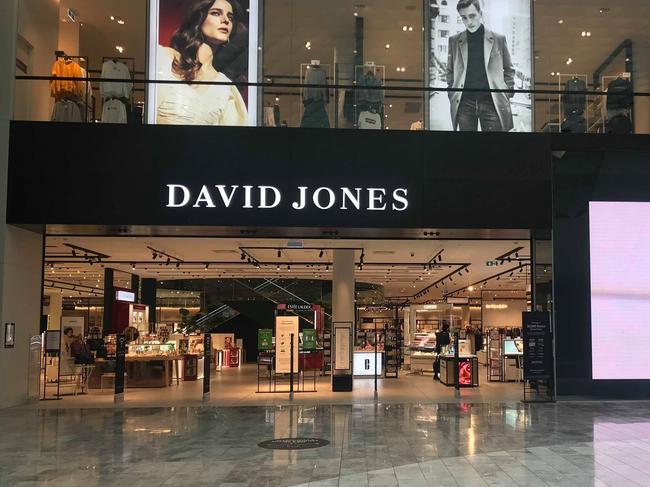
MORE NEWS
Stars reveal Met Gala outfits from home
Services reopen with massive changes
Spends on household goods also rose sharply, led by increases in hardware, building and garden supplies (17.4 per cent), and electrical and electronic goods (11.3 per cent).
However, the impact of social distancing regulations – introduced in the late March – saw sales fall in cafes, restaurants and takeaway food services, while discretionary spending on clothing, footwear and in department stores was also weak.
Spending on clothing slid by a quarter in March, while spending at department stores fell 8.9 per cent.
Online retail contributed 7.1 per cent to the total retail turnover in March, up from 5.7 per cent a year earlier.
Quarterly retail spending was also boosted by the March numbers, although high food prices moderated retail volumes, the ABS data showed.
The strong numbers did not surprise the market, with the Australian dollar trading little changed at 64.33 cents per US dollar after the announcement at 1130 AEST.
AUSSIE SHARE MARKET DROPS
The retail figures came as shares dipped in early trade on the ASX, after US markets retracted late in the session overnight.
The S&P/ASX200 benchmark index was down by 26.8 points, or 0.5 per cent, to 5380.3 points after the first 30 minutes of trade today.
The All Ordinaries index was 21.9 points lower, or 0.4 per cent, at 5456.2.
The financial and property sectors were pulling the market down most, falling by 1.06 and 1.44 per cent respectively.
ANZ was lower by 24 cents, or 1.46 per cent, at $16.21 and Commonwealth Bank lost 78 cents, or 1.28 per cent, to $60.07. NAB shed 22 cents, or 1.29 per cent, to $16.77, while Westpac lost 23 cents, or 1.42 per cent, to $15.97.
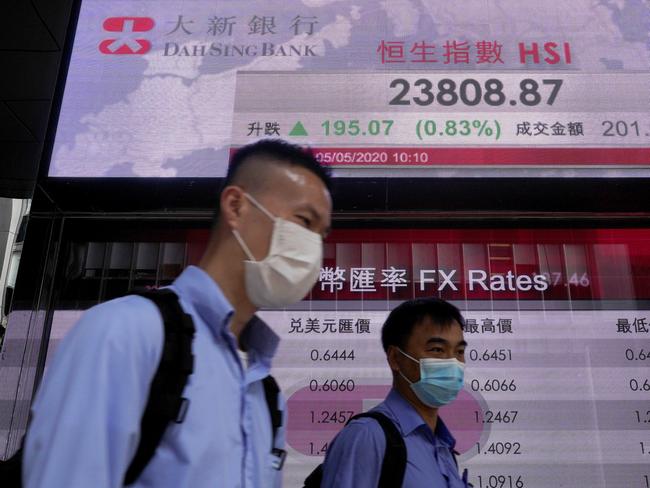
Property giant Goodman Group was down 16 cents, or 1.18 per cent, to $13.44.
Infant formula provider Bubs was off to a good start after reporting it would supply 482 Coles supermarkets.
Bubs shares jumped 6.18 per cent to 94 cents.
JB Hi-Fi reported an 11.3 per cent increase in sales for the March quarter and a 13.9 per cent rise at The Good Guys stores, and received a boost from investors.
JB shares rose $1.04, or 3.06 per cent, to $34.99. Goldminer Newcrest had a $1.39 jump, or 5.01 per cent, to $29.16.
Rivals Northern Star and Evolution had increases of more than 1.0 per cent to $12.98 and $5.30 respectively.
BHP lost 40 cents, or 1.3 per cent, to $30.29, Rio shed 73 cents, or 0.88 per cent, to $82.02 and Fortescue was up 2.0 cents, or 0.18 per cent, to $11.05.
In health, CSL was up $1.26, or 0.41 per cent, to $306.98.
Meanwhile, energy stocks continued a great week – up 1.37 per cent – after gains in world oil prices.
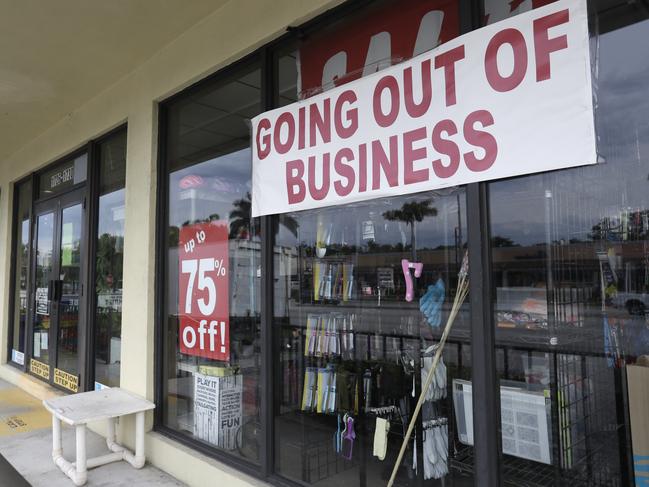
Meanwhile, gloomy long-term forecasts by the US Fed saw the S&P 500 slide late in the day after being up nearly 2 per cent in midday trading as oil prices rose and investors reacted positively to news that US states and Europe were reopening their economies.
But the major indexes dipped when Federal Reserve vice president Richard Clarida warned there were still dark days ahead.
“We’re living through the most severe contraction in activity and surge in unemployment that we’ve seen in our lifetimes,” Mr Clarida said.
“Unfortunately, the unemployment rate is going to surge to numbers that we’ve not seen probably since the 1940s.”
More than 30 million Americans have applied for unemployment benefits in the past six weeks.
It came as Airbnb announced it was laying off 25 per cent of its workforce as it confronts a steep decline in global travel due to the new coronavirus.
In a letter to employees, chief executive Brian Chesky said the company is letting 1900 of its 7500 workers go and cutting businesses that don’t directly support homesharing, like its investments in hotels and movie production.
“We are collectively living through the most harrowing crisis of our lifetime,” Mr Chesky wrote.
In a letter to employees, chief executive Brian Chesky said the company is letting 1900 of its 7500 workers go and cutting businesses that don’t directly support homesharing, like its investments in hotels and movie production.
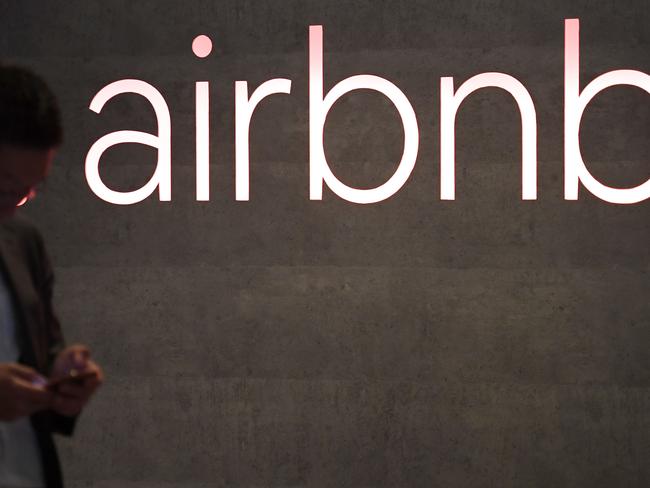
“We are collectively living through the most harrowing crisis of our lifetime,” Mr Chesky wrote.
He said future travellers will want options that are closer to home and more affordable.
Around the world, there were solid gains in London (FTSE up 1.7 per cent), Frankfurt (DAX up 1.8 per cent), Paris (CAC up 1.9 per cent) and Hong Kong (Hang Seng up 1.1 per cent).
The ASX All Ords closed Tuesday up 1.6 per cent.
“It is hard to be a raging pessimist when lockdowns are lifting in the next few weeks,” Stephen Innes of AxiCorp said in a commentary.
With signs that the spread of coronavirus is easing, governments in Europe and parts of Asia-Pacific as well as some US states have begun to allow businesses to reopen.
“Markets have reacted to the fact that it seems that there is a little light at the end of the tunnel,” Scope Markets analyst James Hughes told AFP.
“Lockdown easing in the likes of Spain and Italy has led to many looking at timelines for many aspects of life reopening,” he said.
California detailed initial steps to ease restrictions that have been in place for weeks to try to stop the spread of the coronavirus pandemic.
Governor Gavin Newsom said clothing stores, bookstores, sporting goods stores and florists can reopen for footpath pick-up by Friday, while Florida and New York also began allowing businesses to reopen or laid out plans to do so.
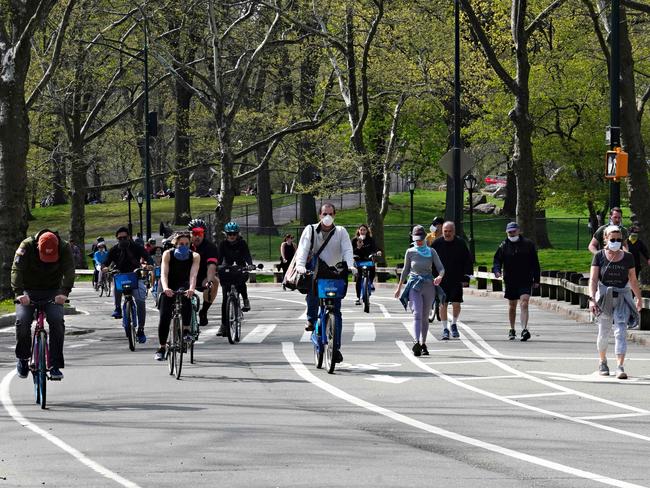
Germany’s biggest state Bavaria said it would allow restaurants to open from mid-May, with pressure growing on Chancellor Angela Merkel to ease stay-at-home measures that have plunged the economy into a deep recession.
The moves give “investors more confidence that we’re at the worst point in the downturn and that things should start to improve,” said Lee Hardman, currency analyst at MUFG Bank.
But Mr Hardman cautioned that a fresh surge in cases could derail investors’ confidence and lead to a far more protracted economic recovery.
Other analysts said it would take some time to understand how effectively various countries are able to reopen businesses without risking a pick-up in infections.
“May, June will be the turning point in terms of restarting global economic activity, and that’s really what the market is looking at,” said Stefan Hofer, chief investment strategist at LGT Bank Asia.
Originally published as Australian share market drops as pre-lockdown retail spending spike is revealed
